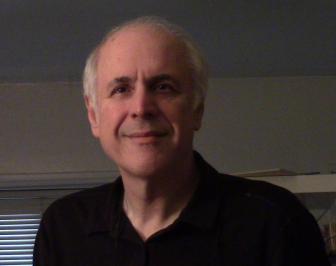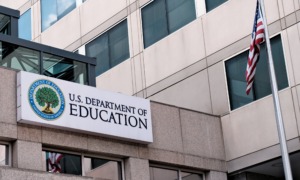 Meet Matt Rexroad. He is an ex-Marine who describes himself as “an influential part of California politics for more than 25 years.” The Sacramento Bee calls him “A no-nonsense political consultant who works to elect Republicans.” His clients have included the state Republican Party, the McCain presidential campaign and the Koch brothers-funded Americans for Prosperity. He’s also a former mayor of the city of Woodland, in Yolo County, near Sacramento, and a current member of the Yolo County Board of Supervisors.
Meet Matt Rexroad. He is an ex-Marine who describes himself as “an influential part of California politics for more than 25 years.” The Sacramento Bee calls him “A no-nonsense political consultant who works to elect Republicans.” His clients have included the state Republican Party, the McCain presidential campaign and the Koch brothers-funded Americans for Prosperity. He’s also a former mayor of the city of Woodland, in Yolo County, near Sacramento, and a current member of the Yolo County Board of Supervisors.
About four years ago, Rexroad and his wife took in a foster child, an infant he liked to call “Bonus Baby.” The Rexroads took the boy in because, according to the Bee, they believed “their family could handle a new addition and because of their Christian faith.” We don’t know Bonus Baby’s race, but the odds are about two in three that he is nonwhite. The odds are even greater that his family is poor.
After two years, the Rexroads decided that Bonus Baby would be better off with them. They applied to adopt the little boy. The Child Welfare Services division of Yolo County’s Department of Health and Human Services felt that Bonus Baby could safely return to his own home. The Rexroads hired a lawyer, went to court and lost.
No one has suggested that the Rexroads don’t really love Bonus Baby. No one has suggested that they didn’t sincerely believe they were doing what was best for him. And no one has questioned that the goal of the crusade Rexroad launched after losing his case was to make children safer. But the results suggest that the crusade has failed.
In the nearly two years since that Rexroad’s campaign began several things have occurred:
- Rexroad tried to persuade his fellow members of the Yolo County Board of Supervisors to put the county’s child welfare division into receivership and get the director of the entire human services agency fired. Rexroad could not get the supervisors to go that far. But they did vote to demand that the agency oppose even trying to reunify families in any case where state law didn’t require it, instead of deciding case-by-case what was best for the children. Then they had to backtrack when the county counsel suggested that would be illegal.
Shortly after all this, the newly beleaguered head of the agency resigned, replaced by someone more in tune with Rexroad’s vision.
- Rexroad concluded that Superior Court Judge Steven M. Basha, the judge who ruled in most of the county’s child welfare cases (though not Rexroad’s) was “biased in favor of family reunification.” The Board of Supervisors had no legal way of firing the highly respected Basha, who was appointed to the superior court bench by former Gov. Arnold Schwarzenegger. But Rexroad managed to get his fellow supervisors to manipulate state law in order to effectively prevent Basha from continuing to handle any child welfare cases.
- Under the new head of the Yolo County human services agency, there has been a sharp rise in the number of children taken from their homes — even as those numbers have declined statewide. Today, Yolo County is taking children at double the rate of Los Angeles and well over double the state average. In fact, if all of California took away children and held them in foster care at the same rate as Yolo County, instead of 60,000 children in foster care, California would have more than 104,000 children in foster care.
And though it was all done in the name of keeping children safe, there is no evidence that child safety in Yolo County has improved. It’s probably gotten worse.
The crusade begins
Rexroad’s efforts to reshape the Yolo County child welfare system began in late March 2016, when he gave a lengthy presentation to his fellow supervisors. He said then, and many times since, that his campaign has nothing to do with his own experience with Bonus Baby. According to Rexroad, he would have brought up the same issues “no matter what the outcome” of his own case had been.
Rexroad acknowledged that he and his fellow supervisors had paid no attention to the county child welfare system for a decade. So it wasn’t hard for him to, as the Bee put it, “[use] PowerPoint and his persuasive powers” to convince his fellow supervisors that, as he put it, “The drive for reunification at all costs has basically infected our system. Our county process is to look for reunification opportunities every single time without the best interests of the child being included.”
Rexroad also asked his attorney in the “Bonus Baby” case, Michael Schaps, to address the board. Schaps charged that the county’s child welfare agency “thinks it is far more important to reunify children with their biological parents than to protect them from abuse.”
The data, however, don’t support Rexroad’s claims.
For instance, according to the California Child Welfare Indicators Project, at the time Rexroad was making his assertions in the spring of 2016, Yolo County actually was reunifying fewer than 56 percent of the children it took away — almost exactly the state average — and the percentage had been declining.
At the same time, Yolo County was taking away children at a rate more than 35 percent above the state average, which does not suggest a county that puts family preservation above all else.
The rest of the facts
Furthermore, most of the cases in which children are removed from their homes, in Yolo County and everywhere else, don’t fit the image that comes to mind when we hear the words “child abuse.” In Yolo County, only 7.1 percent of the children removed from their homes were taken primarily because of physical abuse and 2.6 percent were removed because of sexual abuse. Nearly 85 percent were removed primarily because of “neglect.” Those figures tracked with state averages.
Neglect can be extremely serious, of course. It can mean a parent deliberately locked a child in a closet and starved him. But it can also simply mean poverty — lack of adequate food, clothing or shelter. Nationwide, for example, multiple studies have found that 30 percent of America’s foster children could be reunified with their own parents right now, if those parents just had decent housing. Other neglect cases fall between the extremes.
In addition, as multiple studies have discovered — including this landmark MIT study — the trauma for a child of being taken from everyone he knows and loves is so severe that, in typical cases, children left in their own homes fare better in later life even than comparably maltreated children placed in foster care.
Other studies find high rates of abuse and neglect in foster care itself. Those studies indicate the risk of abuse in foster care is significantly higher than the risk that a child will be maltreated again after being returned to his or her own home.
Research also demonstrates that the class bias is often compounded by racial bias. Study after study has found that, when all else is equal, children of color are more likely to be taken from their homes. Indeed, nationwide, the heavy hand of child protective services is the new normal for black families. According to a recent study, more than half of African-American children will endure a child abuse investigation before they turn 18.
Going after the judge
Rexroad’s campaign to get rid of the main judge who presided over child welfare cases in the county (though not, it should be noted again, Rexroad’s own case), was particularly alarming.
Judge Steven Basha did not always rule the way Matt Rexroad and some other foster parents wanted them to. And, according to Rexroad, some caseworkers complained that Basha “does not respect their professional opinion on what is in the best interest of the child …”
In other words, having heard the foster parents’ side of the story, the caseworker’s side of the story and the parents’ side of the story, Judge Basha rendered a judgment, instead of rubber-stamping the agency. (If judges are simply supposed to do exactly what caseworkers tell them to do, then the state of California is wasting an awful lot of money on a court system.)
Rexroad’s claims about judicial bias were countered by such groups as the local chapter of Court-Appointed Special Advocates. CASAs are volunteers who advocate solely for what they believe is in the best interests of children. Moreover, the CASA program is itself controversial among advocates who say the group does not favor keeping families together as much as is healthy for their charges, but instead leans closer to Rexroad’s approach, as this law review article suggests.
Yet Tracy Fauver, executive director of Yolo County’s CASA, told the board of supervisors that Rexroad’s charge of bias was “unfair and unfounded.” According to the Davis Enterprise, Fauver also read a letter from CASA volunteer and UC Davis law professor Barbara Miltner, who wrote that in seven years observing Basha’s courtroom conduct she had never witnessed improper bias in favor of family reunification and called the judge’s rulings ‘professional, defensible and unbiased.’”
John Myers, a law professor who has represented children in cases heard by Basha, also disagreed with Rexroad. As Myers noted in a letter to the supervisors, “in the vast majority of cases Judge Basha orders what the Department requests.”
How Rexroad got his way
What particularly disturbed Myers and other experts in law and child welfare is how Rexroad went about getting his way.
Rexroad and all but one of his fellow supervisors voted to instruct the county to invoke a provision of California law that allows a party to demand the removal of a judge if that party thinks the judge is biased. The party demanding removal doesn’t have to prove anything — just as each side gets to disqualify jurors, each side in California gets one chance to disqualify a judge.
The intent of the law is that it be used in particular cases. But Rexroad got the supervisors to demand that the county move to disqualify Judge Basha in every child welfare case. In other words, the county would claim, under oath, that Basha was always biased.
Forty years ago, the California Supreme Court made clear it strongly disapproved of such “blanket” challenges and considered them an abuse of the statute. But it said it was up to the Legislature to change it if it was so inclined. Last year, a California appellate court strongly urged the Supreme Court to reconsider, noting that the 40-year-old decision “leaves no room to remedy extraordinary abuses …”
Since he effectively had no choice, Judge Basha asked to be reassigned to other cases. Last month, he announced plans to retire.
Yolo County takes away more children
In the year ending June 30, 2017, the most recent period for which data are available, Yolo County took away 288 children — that’s a 70 percent increase from the year ending just as Rexroad’s crusade began. During this same period, entries into foster care statewide declined. And the number of children in foster care as of July 1, 2017, stood at 412, nearly 40 percent above the figure on March 31, 2016 — just as Rexroad was beginning his criticism of the child welfare agency. Again, statewide, during this period, the number of children in foster care declined.
Statewide, among counties large enough to measure, only one, Humboldt, now takes away children at a higher rate than Yolo, when the number of children taken away is compared to the number of children living in poverty in each county.
The entire increase in Yolo County has been in “neglect” cases — the cases where judgments tend to be most subjective and where there is the greatest risk of needlessly tearing apart a family because the family is poor. More than 92 percent of removals in Yolo County now are for neglect — a rate more than 7 percent higher than the state average.
And what has all this done for child safety? The best available evidence suggests the answer is nothing. If anything, it appears child safety has gone downhill.
The key measure of child safety used by the federal government and the state is the proportion of children deemed by caseworkers to have been maltreated who are believed maltreated again within a specific time period. In 2015, before Rexroad began his crusade, Yolo County performed better than the state average. But for children removed during the only time periods for which data are available since the sharp increase in removals began, the rate of repeat maltreatment is increasing.
For the most recent period, it was double the rate before Rexroad’s campaign began. Yolo County’s rate of repeat maltreatment is now worse than California as a whole — and far higher than in some counties that take, proportionately, far fewer children.
While we don’t know why this happened, we do know that, across the country, it’s not unusual. Safely outcomes often deteriorate after foster care panics — sharp spikes in removals of children following high-profile child death cases — probably because the new cases overload the system, leaving workers less time to investigate any case properly. So they make more bad decisions in all directions.
What Rexroad got right
Not everything Rexroad has said over the past 21 months has been wrong. He was right to condemn the secrecy surrounding child welfare proceedings, a secrecy that protects agencies, not children. He was right when he complained that child welfare agencies often offer the wrong kinds of services — services that often do no good, and sometimes can cause more problems than they cure. (But is he willing to invest in the right kinds of help, concrete services to ameliorate the worst harms of poverty?) He’s even right when he worries that decisions vary based on the whim and prejudice of individual caseworkers.
But none of those challenges has been addressed. The system has not gotten better. It has only gotten bigger. And a lot of Yolo County children are paying the price.
This column was originally written for WitnessLA.
Richard Wexler is executive director of the National Coalition for Child Protection Reform.































